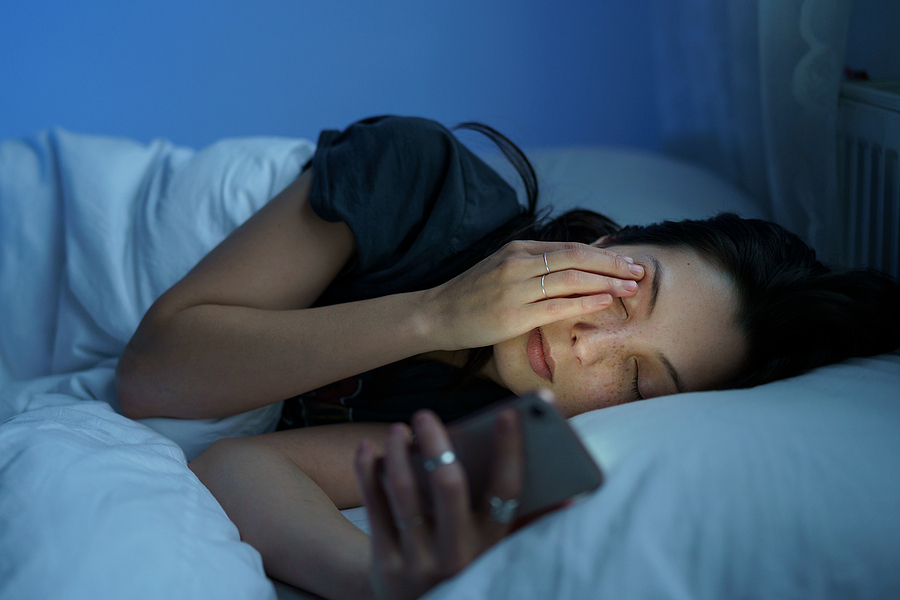Many people use TV to wind down after a long day and to help them turn off their brains to fall asleep. There is a reason that late-night television has become so popular over the years.
However, this could negatively affect your sleep. Research suggests that watching TV to try to fall asleep can send the wrong signals to your brain, which in turn leads to insomnia and poor sleep quality. This article will cover why watching TV before bed is a bad idea and some things you can do to help break the habit.
Related Blog: Is Sleeping on the Couch A Good Idea?
Popular Bedtime Rituals
Bedtime rituals are good practice because it helps signal to the brain that it is time to rest. Some of the most popular rituals are:
- Watching TV
- Showering or bathing
- Reading a book
- Using a sleep app
- Having a drink
- Yoga
- Breathing exercises
According to a study conducted by the Sleep Foundation, watching TV is the most popular of these activities. Respondents reported that they watch TV to forget about their problems for the day or simply that it is a habit. However, this habit could be causing sleep disturbances and even insomnia.
How Watching TV at Bedtime Affects Sleep Quality
Watching TV before bed may reduce the amount of sleep you get. Essentially, you are getting light at the wrong time. Light plays a central role in regulating circadian rhythm, the body's internal clock that signals when to be alert and when to rest. Melatonin is a crucial hormone that promotes sleep, and light has an impact on its production as well.
When you sleep with your TV on, it generates blue light that gives your body the signal that it is time to be awake and alert. The blue light from screens can prevent your brain from producing enough melatonin at night, which in turn will make it more difficult for you to fall asleep.
How to Change Your Routine for Better Sleep
It is crucial to establish a new routine for bedtime. Bedtime rituals are essential for lowering the kind of worrying thoughts that keep you awake at night, such as late-night stress and anxiety. Racing thoughts can lead to insomnia and sleep disturbances. Following a bedtime routine can keep your mind focused on other tasks and encourage you to relax instead.
Here are a few steps to establish a healthy bedtime routine.
1. Decide On A Bedtime
By going to bed at the same time every night, you are signaling your brain to wind down at the same time every day. It's important to start your routine 30 minutes to two hours before you want to fall asleep.
2. Stay Away From Electronics
You can still enjoy your favorite Netflix shows, just make sure you turn them off when you begin your bedtime routine. Stay away from other sources of blue light such as computers and phones as well. Make sure to activate the red-light filter on your phone before you even start your bedtime routine so that it won't be as disruptive if you look at it accidentally.
3. Have A Light Snack Or Bedtime Tea
Strawberries, grapes, cherries, nuts, and oats all have a high melatonin content. Non-caffeinated herbal teas that contain chamomile or lavender are great choices as they soothe and calm the body. Make sure to use the restroom before bed to reduce trips to the bathroom at night.
4. Take A Warm Bath
Your body goes through several hormonal changes throughout the day as part of your sleep-wake cycle. One of these is melatonin synthesis, which starts in the evening to get you ready for bed. Your body's core temperature drops at the same time.
Researchers have discovered that taking a warm bath can have a similar sedative effect to the body's natural nighttime drop in temperature. A warm bath might be a good idea an hour or so before bed. Your body will heat up from the water and quickly cool down as the water evaporates, making you feel sleepy and at ease.
Breaking the habit of watching TV while falling asleep is going to be difficult. For many of us, it has been a part of our routine for years. However, you can enjoy better quality sleep and less sleep disturbance by avoiding TV as well as other electronics right before bed.




